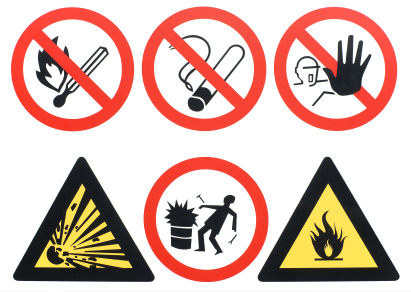Self Storage and Terrorism

It is not often that self storage facilities hit the headlines, but this was the fate of Access Storage in Hanwell, West London, in March 2004. In one of its units was a 600 kg bag of ammonium nitrate, a relatively cheap chemical used widely as an agricultural fertilizer — and also as an ingredient to make bombs, of the kind that have been used to devastating effect in Bali, Oklahoma City, London, Spain and Saudi Arabia.
It was an alert member of staff who raised the alarm with the authorities, having recalled how, some years previously, an IRA bomb-making gang had kept several tons of fertiliser in another storage depot. It was a fortuitous intervention: the people linked to the Hanwell fertiliser turned out to be a group of five Islamic jihadist terrorists of Pakistani origin, who were arrested in a massive operation, involving 950 police officers, on 30 March 2004. As it emerged in their trial in 2007, they had apparently intended to plant bombs in a number of locations where the public gather, including the Bluewater Shopping Centre and the Ministry of Sound nightclub.
Self storage is all about providing ordinary members of the public with secure, safe and essentially private space. But clearly this is open to abuse: there is a long record of terrorists and other criminals using self-storage facilities to hide not just apparently innocuous ingredients for explosives, but full armouries of weapons and ammunition, stolen or forged identity documents, credit cards — and countless other bits of terrorist gear (or incriminating evidence).
All good storage companies habitually exercise rigorous controls to monitor who their clients are, and what they are depositing with them. But soon after the “fertiliser bomb plot” had been foiled, the police stepped up their guidelines to make it harder for terrorists to store the tools of their crimes in commercial storage units. Now all new customers should be asked to provide:
- proof of identity and proof of address (original copies, not photocopies);
- their reasons for using the facility;
- payment by cheque or credit card (which, unlike cash, can be traced)
Answers will be kept on record; documents will be photocopied.
Self storage operators are also encouraged to observe and report any activity or goods that might be construed as unusual, or potentially dangerous, and any suspicious or evasive behaviour. CCTV cameras are likely to be more numerous and searching, and their records stored for longer. Customers should likewise also keep a wary eye on fellow storage clients.
As in all walks of life, terrorists cause enormous nuisance, if not actual physical harm, to law-abiding citizens; that is their game. It is in all our interests to be aware of the risks, and to tolerate the inconveniences — or else we may fail to avert the kind of mayhem planned when a giant bag of fertiliser was deposited in the storage facilities of Hanwell.
For more general information about protective strategies against terrorism, see:
One Response to “Self Storage and Terrorism”
Leave a Reply
Subscribe to This Blog
Get new blog posts sent to you by subscribing to RSS updates or to email updates.







The BBC have an article on the subject of self storage and terrorism –
http://news.bbc.co.uk/1/hi/uk/6153680.stm.